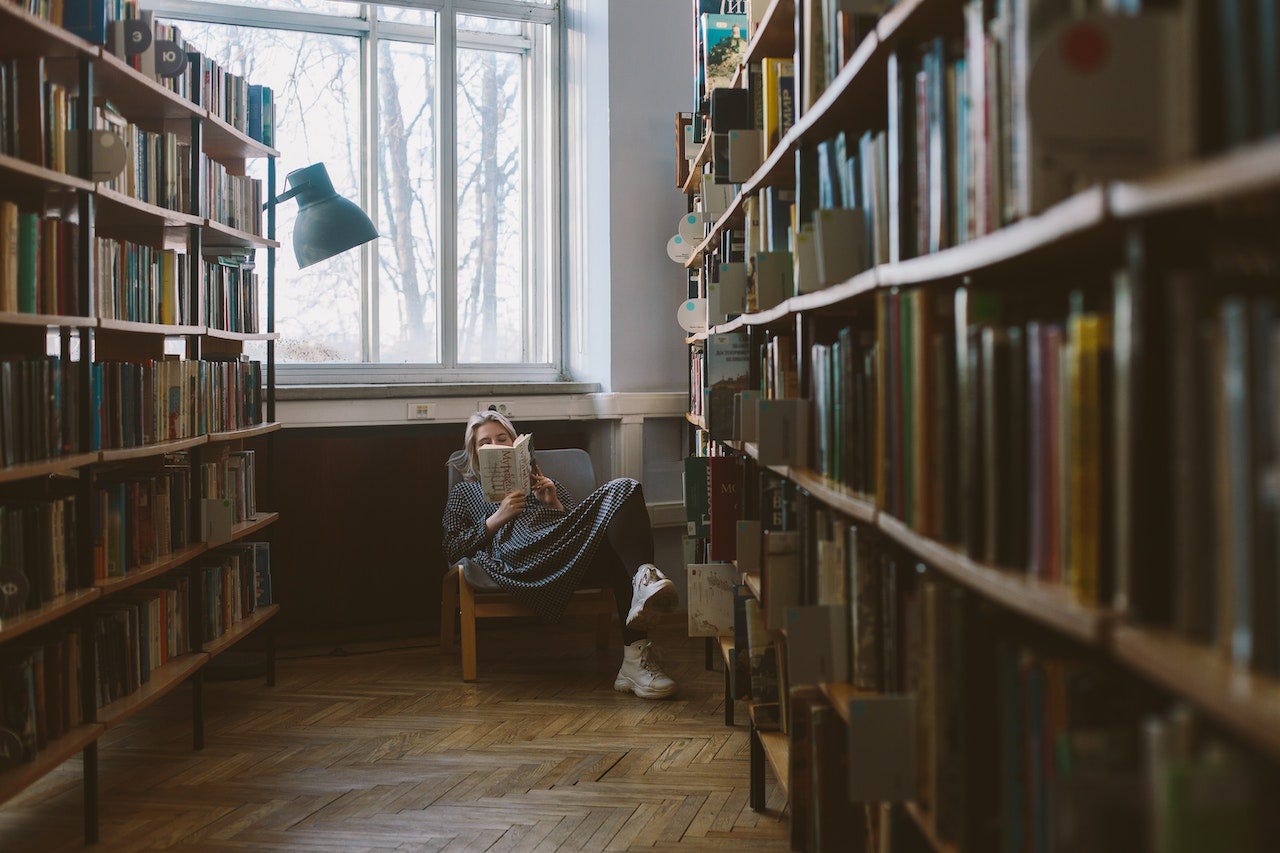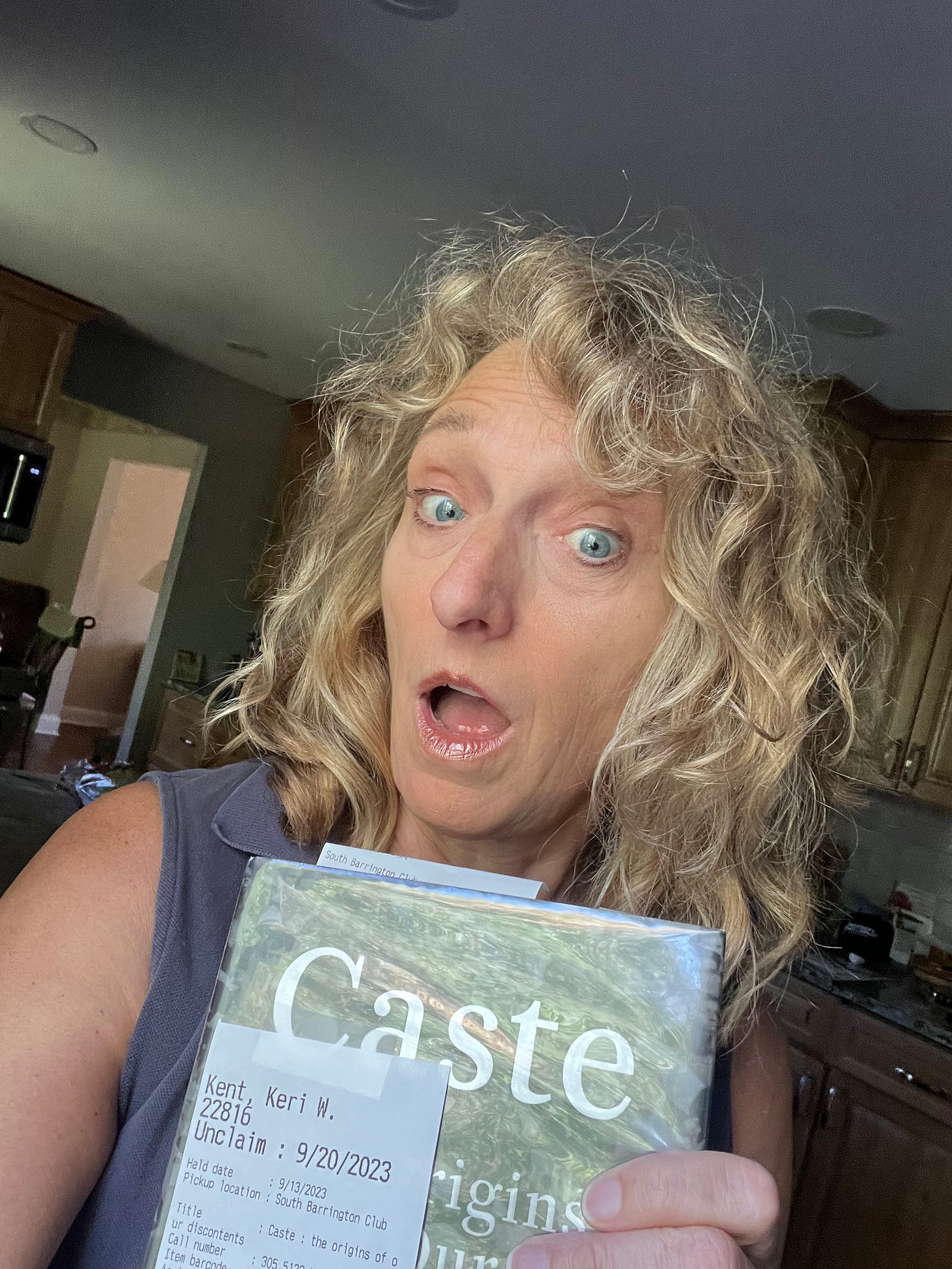When I was nine, my family moved from one Chicago suburb to another. I started in at a new school, just at the age where my awkward stage (which lasted about half a decade) began. Imagine a tall, skinny kid with stringy blond hair, horn-rimmed glasses and pants that were too short.
I found it hard to make new friends at first. As I always had, I turned to books for solace. The first week of school, I wandered into the school library. The school librarian, Mrs. Barbara Wollman, bless her soul, greeted me warmly.
Photo by Mikhail Nilov: https://www.pexels.com/
It only took a few weeks for her to notice my voracious appetite for books. She lit up my world with literature, recommending books and I think even procuring a few above grade level on my behalf.
I considered a career in library science, briefly. I followed the path books took me on—a literature major, writing classes, and ended up becoming a journalist and then an author. But I still have a special place in my heart for Mrs. Wollman. When my world turned upside down, she righted it by handing me books. And giving me the gift of her attention and kindness.
As a reader and writer, one of my favorite things in the world is my local library. I especially love that I can order books online and have them delivered to lockers at a local park district only five minutes from my house if I don’t want to drive to the next town to visit my library. I also love simply wandering through the stacks, discovering worlds beyond my own.
Listening to the news last week, I was both saddened and incensed that several Illinois libraries have had to close their doors temporarily in recent days because of bomb threats. Bomb threats!
Illinois Secretary of State Alexi Giannoulias recently testified before a Congressional committee about a new law here which essentially bans book bans. (Learn more at https://www.banbookbans.com/)
Apparently, folks who want to ban books also want to harass librarians and threaten public safety. Illinois’ support of free speech apparently made people angry, so they phoned in fake bomb threats. The threats were unfounded—there were no actual bombs. The libraries reopened. But library staff have been threatened and harassed in recent days for simply doing their job: curating a collection that represents a wide range of viewpoints and stories.
If you are a writer and a reader, you are not going to agree with the viewpoint presented in every book. But you don’t have to read every book. Writers, of all people, should not call for the banning of books, but the reading of them.
Photo by Polina Zimmerman: https://www.pexels.com/
The New York Times noted recently that the book bans often step from “a clash over whether and how to teach children about issues like L.G.B.T.Q. rights and racial inequality. The library association tracked 1,597 books that were challenged in 2021, the highest number since the organization began tracking bans 20 years ago.” (Read article here)
If you don’t want to read about racial justice or the stories of L.G.B.T.Q. people, you don’t have to. But you shouldn’t get to decide whether other people can read them. Imagine if people who disagreed with your world view, or just didn’t want to hear your story or your ideas, banned your book? As writers, we should oppose any efforts at censorship. As people of faith, we should support the freedom of everyone, not just us, to share their stories and ideas.
And for heaven’s sake, we shouldn’t be threatening librarians if we don’t like the books they put on the shelves. “Librarian” should not be a dangerous job.
Added note: this section contains amazon affiliate links. When you click through and purchase, I receive a small commission at no extra charge to you. It’s a great way to support this newsletter.
The Great Gatsby* and To Kill A Mockingbird* were once banned books. They challenged the status quo of their day, made people think. Which apparently, bothers some folks.
Libraries serve so many important purposes in our culture: from a community gathering place, a safe learning environment, a place where people from all walks of life and economic situations can have access to free materials—not just books but films, games, and more. For some, especially those with unstable housing situations, the library can be refuge.
One of my favorite Instagram accounts is https://www.instagram.com/mychal3ts/ This joyful young man, Mychal, works at a library and is a font of positivity and fun. He posts wonderful videos about his experiences in the library. Every library should have a guy like this working for them.
If you don’t have a library card, get one today. As one of my favorite cartoon characters, Arthur, points out: “having fun isn’t hard, when you’ve got a library card.”
If you need a smile, watch this:
How can you fight against book bans, and support libraries? One solution: check out books that are on banned book lists. Libraries select books based on consumer demand. Here’s a list to get you started: https://www.cbsnews.com/pictures/the-50-most-banned-books-in-america/
To that end, I checked out Isabelle Wilkerson’s book Caste* today from my local library. I know it will be a challenging and interest read. I don’t know yet whether I’ll like it—but the way I’ll find out is by reading it. People who want to ban books like Caste *often haven’t actually read those books.
Books help us understand the world a little better. They show us a perspective different from the one we already have. In other words, they make us wiser, more empathetic, and smarter. Who would ever want to ban that?
*affiliate links






